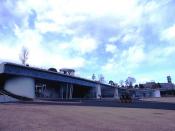Explain the reasons for the triumph of militarism over democracy in 1920s and 30s Japan.
By Basil Razi (IV AWW JDS)During the 1920ÃÂs and 1930ÃÂs, JapanÃÂs militaristic values grew exponentially stronger. The reasons for this are closely tied to internal problems on the home front. Some of these problems include political manipulation by the last genro, a growing population that was becoming more estranged from the government and the development of the army, including its split into two factions. It was this rising militarism that later pushed Japan into their disastrous war with the Americans.
A key cause for the rise in Japanese militarism was the actions of the last genro. In 1922, two of the three genros died within a month of each other. The deaths of the genro, who were the emperorÃÂs most senior and trusted advisors, left a political vacuum, since usually the views of the genro balanced out, leaving no one group in power.
However, the last genro, Prince Saionji, was pro-military on many issues. The problem of unbalanced advice started to become obvious when, upon Emperor HirohitoÃÂs ascension to the throne, he advised Hirohito to stay out of politics, shielding him from scandals. This weakened the EmperorÃÂs voice in governance, the effect of which was later felt several times, such as after the Manchuria Incident with the Kwantung Army, when he called for prosecution but the army, traditionally completely loyal to their emperor, shielded those involved (this is one of many such incidents with the Kwantung Army). This also had the dangerous effective of awakening the army to just how much power they really held in governing Japan: previously they believed their power only went so far as to dismiss a government through the Meiji Constitution, now they realized their power went further. Saionji also...


